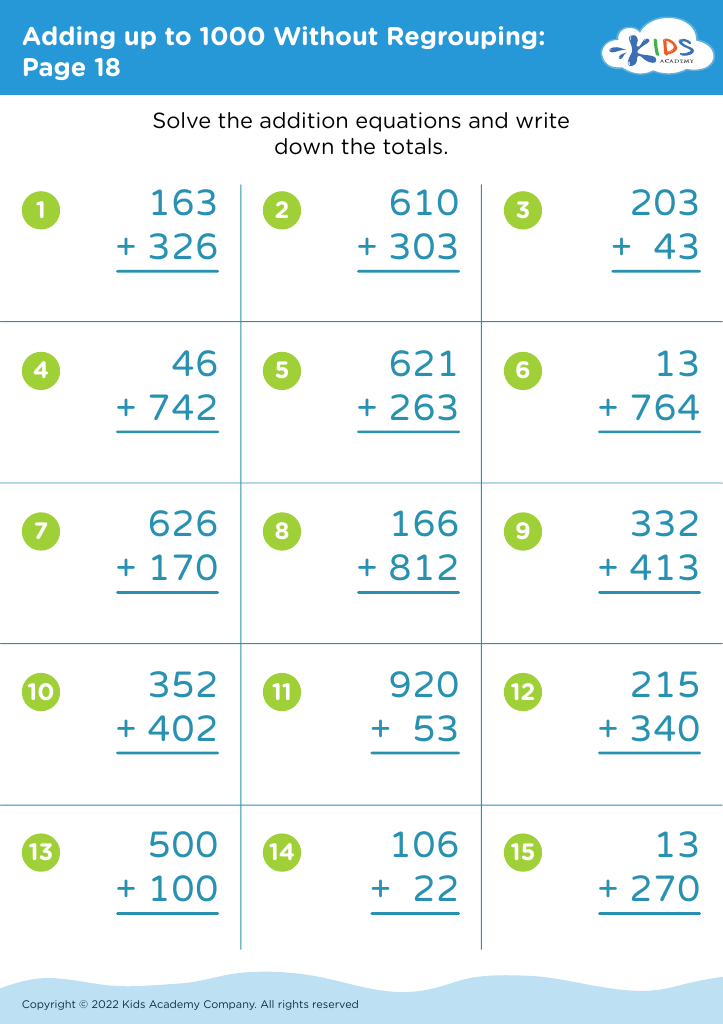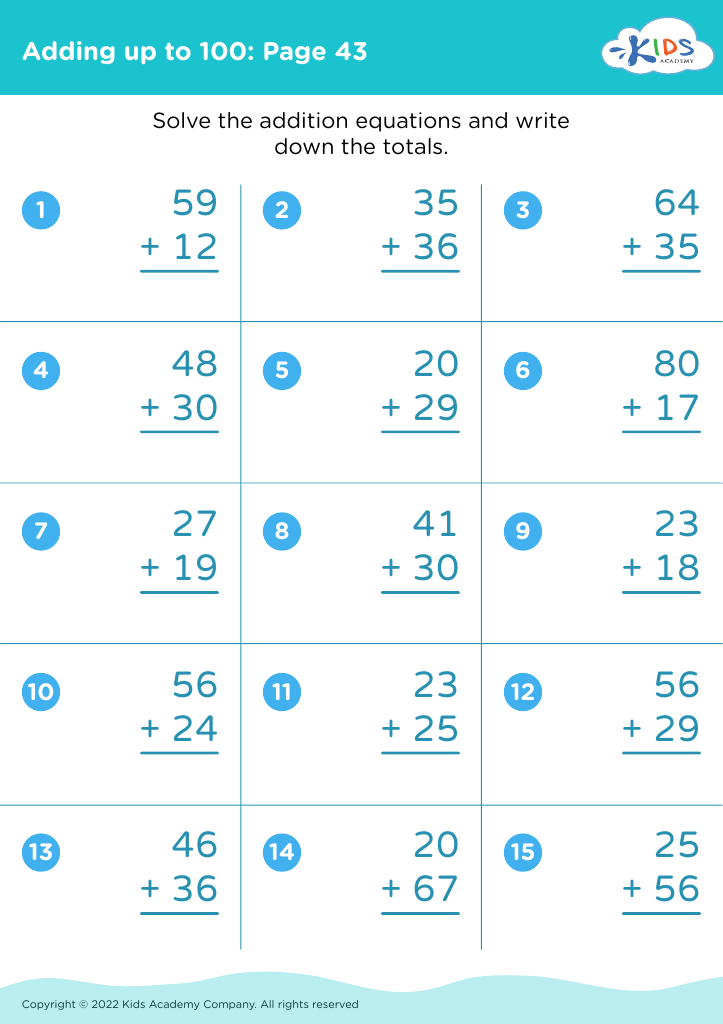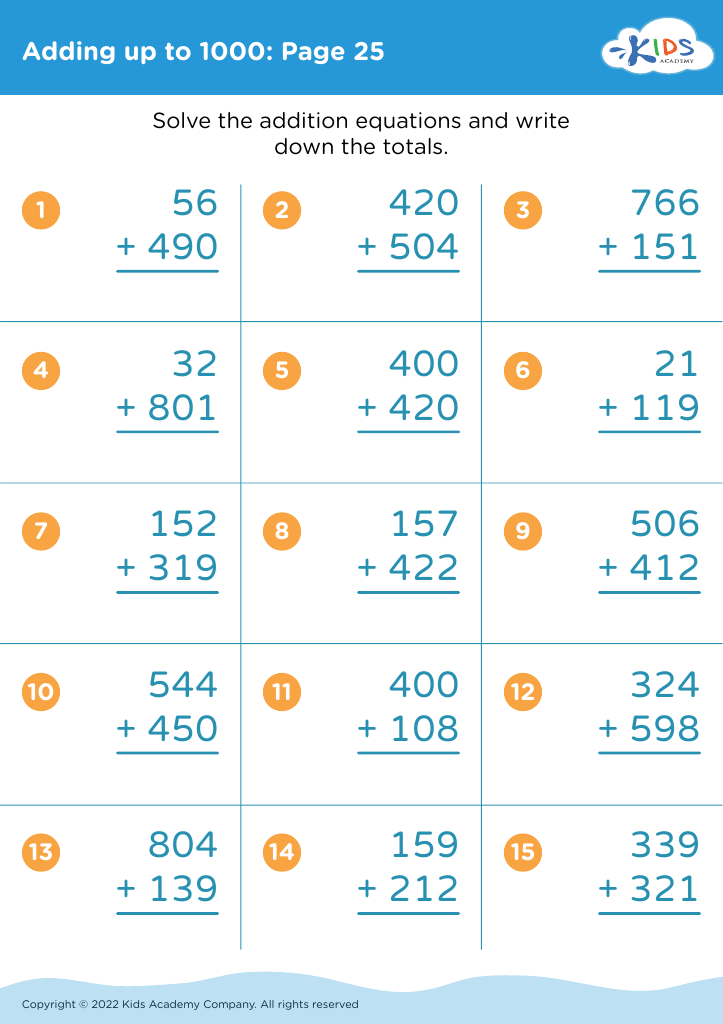Improving mathematical skills Math Worksheets for Ages 3-8
8 filtered results
-
From - To
Unlock your child's potential with our "Improving Mathematical Skills" worksheets designed for ages 3-8. These engaging and colorful worksheets focus on building foundational math competencies, fostering a love for learning through fun activities. Tailored to suit young learners, our resources cover essential topics such as counting, addition, subtraction, shapes, and patterns. Kids will gain confidence as they practice important skills in an enjoyable way. Ideal for home or classroom use, these worksheets provide the perfect blend of education and play, ensuring your child develops a solid mathematical foundation while having fun. Start exploring our collection and watch your child's skills soar!
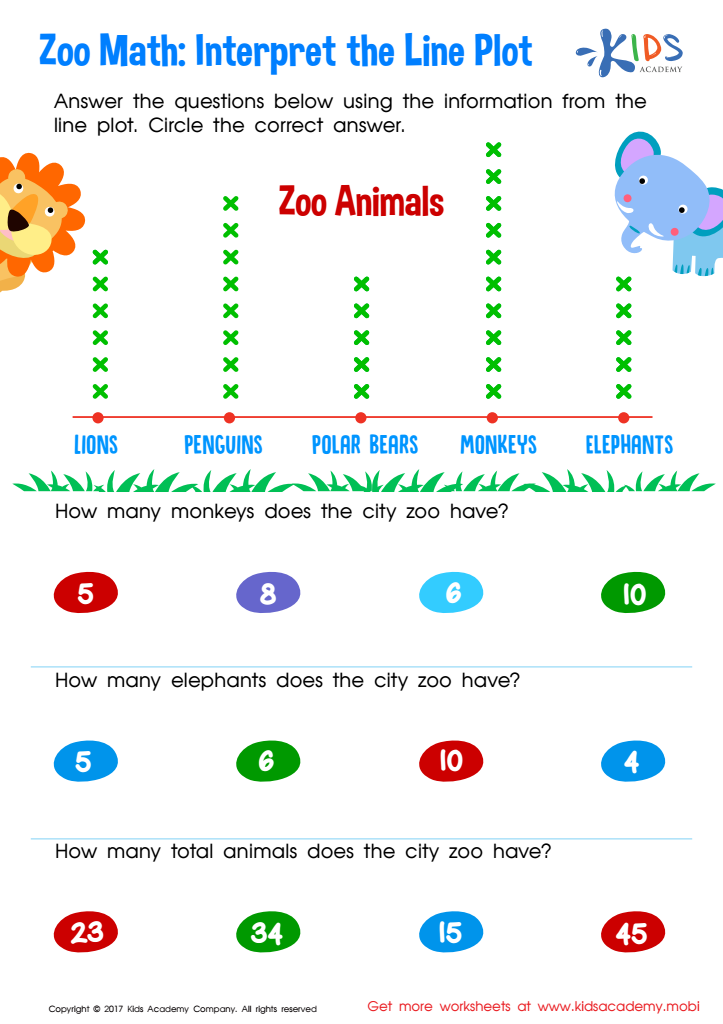

Interpret Line Plot Worksheet
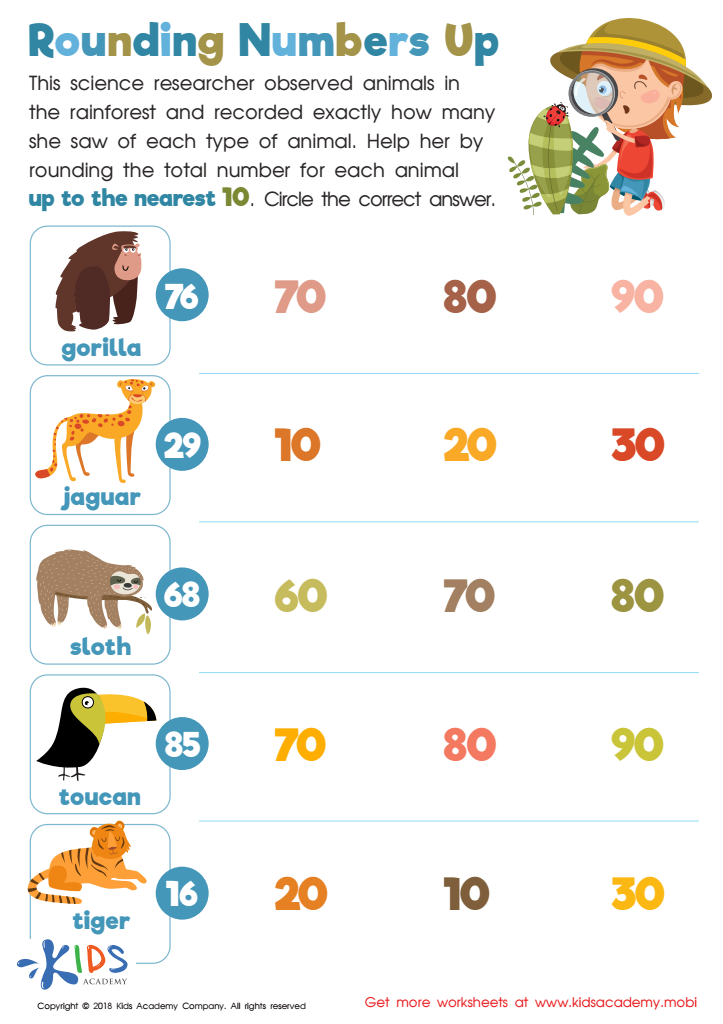

Rounding Numbers Up Worksheet
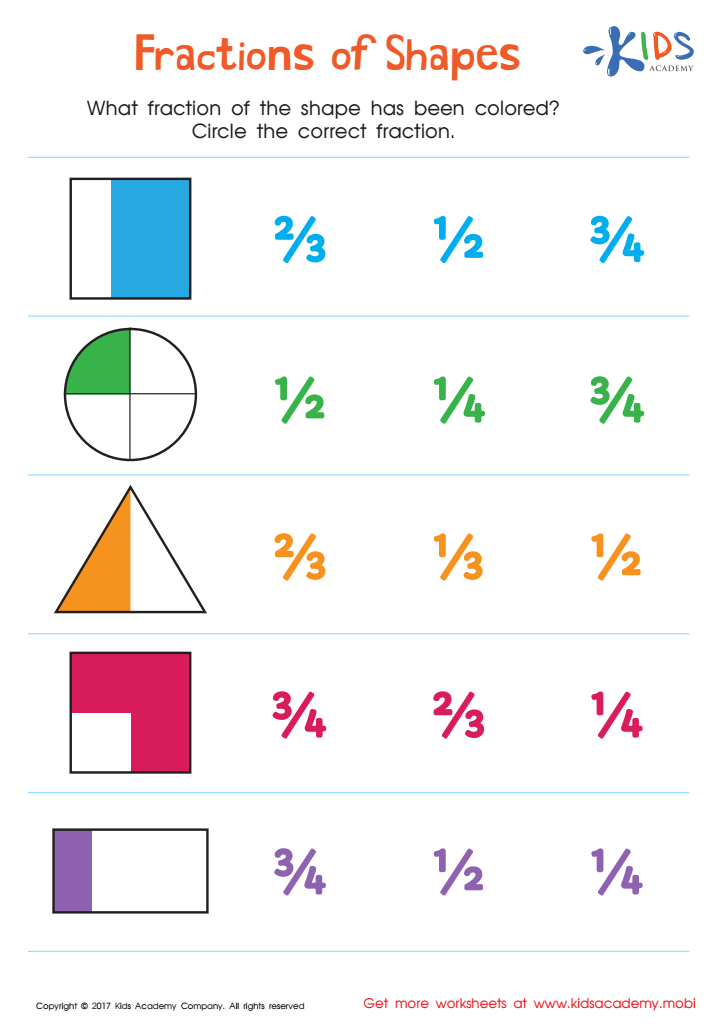

Fractions of Shapes: Math Concept Worksheet
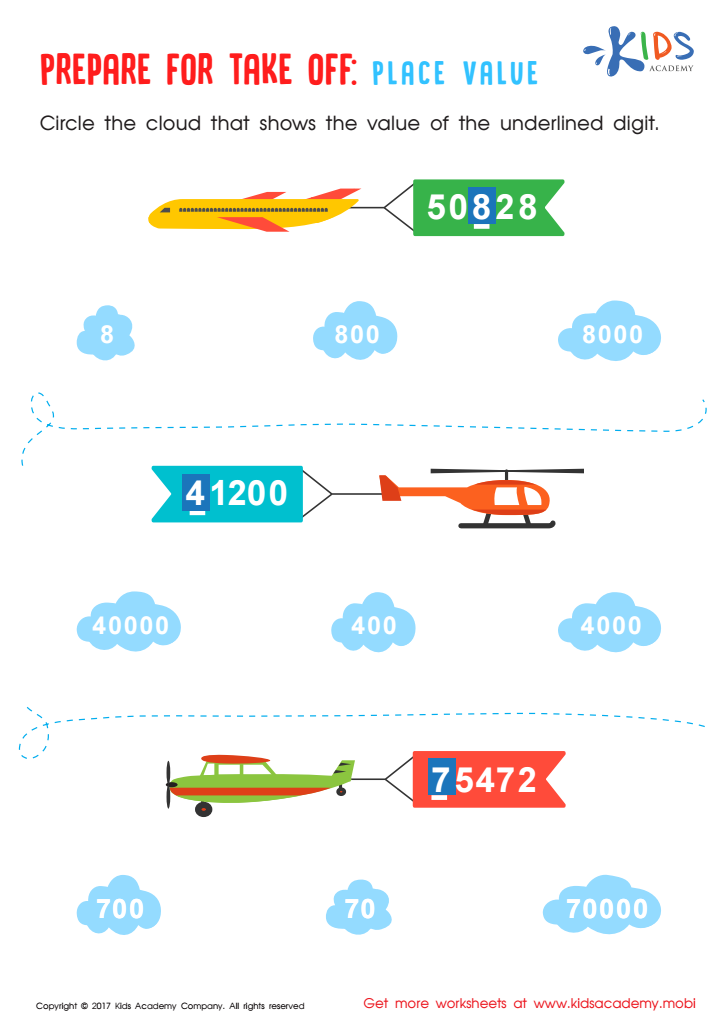

Free Place Value Worksheet for 3rd Grade
Improving mathematical skills for children aged 3-8 is crucial for their overall development and future academic success. This foundational period is when young learners are most receptive to new concepts. Early exposure to math fosters critical thinking, problem-solving, and analytical skills, which are essential for navigating everyday situations. By enhancing mathematical abilities, children develop confidence in their skills, paving the way for mastering more complex tasks in later grades.
Additionally, strong math skills are strongly linked to positive outcomes in various subjects and career fields. In an increasingly technology-driven world, proficiency in math serves as a stepping stone toward opportunities in science, engineering, and finance.
Furthermore, engaging children in meaningful mathematical activities helps enhance their cognitive abilities, language development, and social skills, providing a holistic approach to learning. Parents and teachers play an essential role in nurturing these skills through fun games, hands-on activities, and real-life applications that make math enjoyable and relevant.
Investing time and resources into fostering mathematical skills not only builds a robust educational foundation but also equips children with necessary life skills, ultimately contributing to their personal and academic growth. By prioritizing math education, parents and teachers are setting the stage for lifelong learning and success.
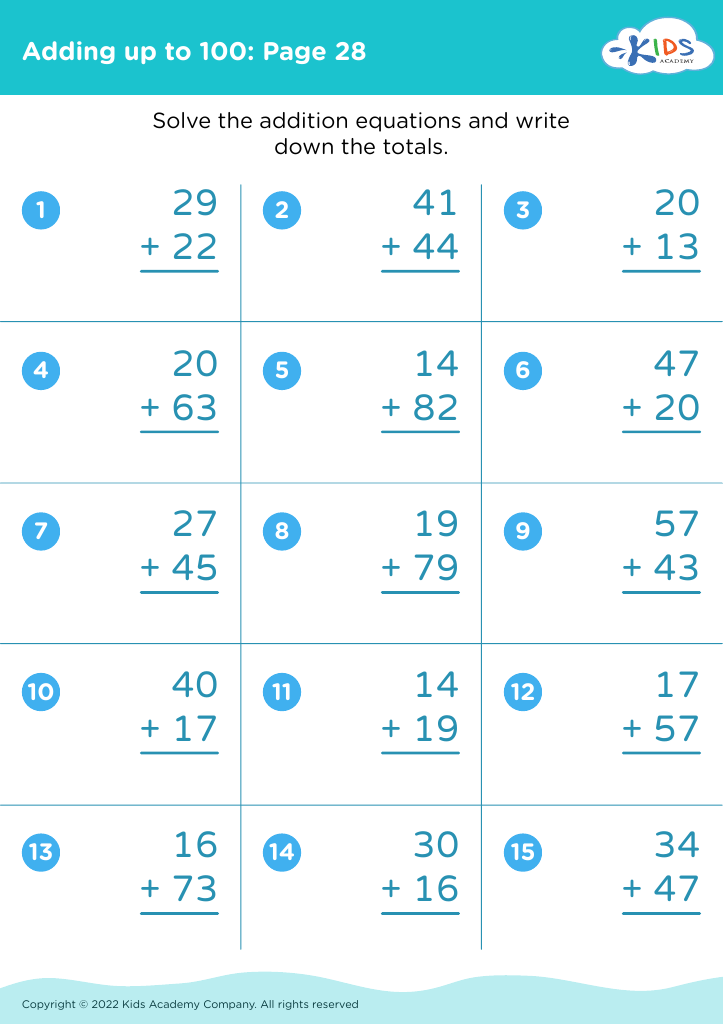
 Assign to My Students
Assign to My Students
